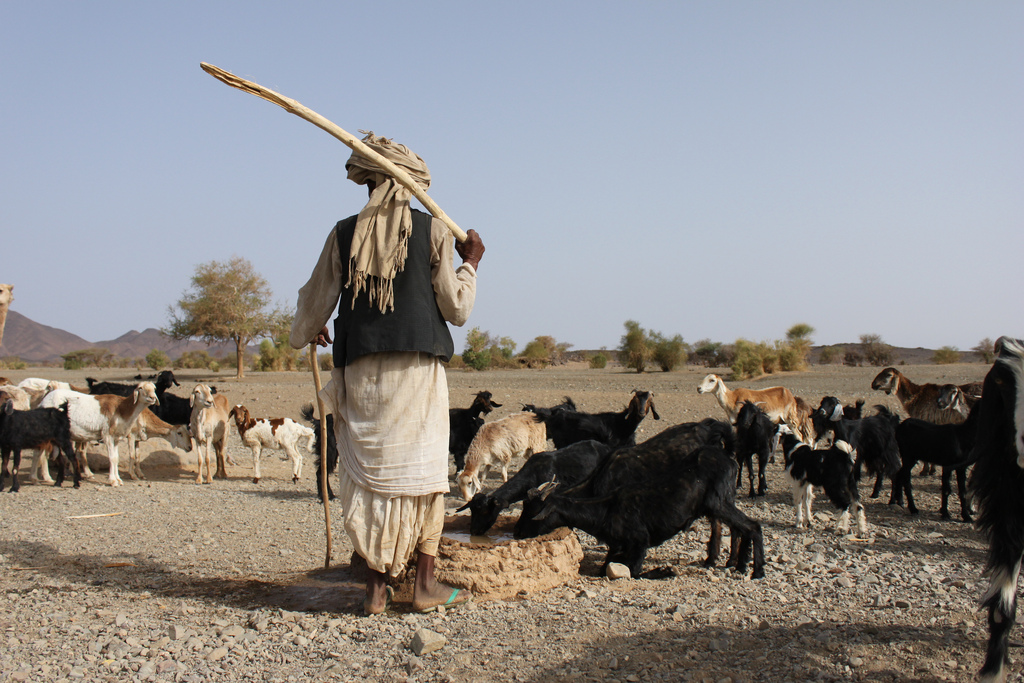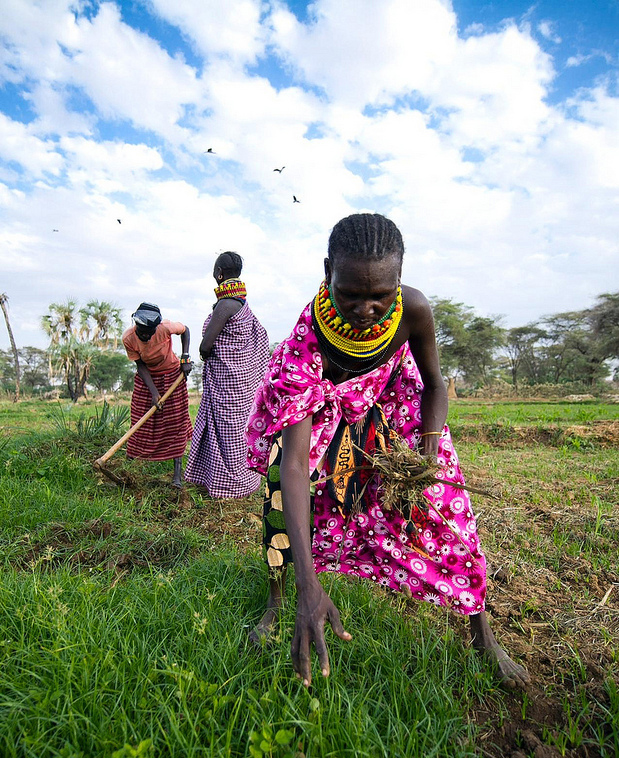Will the world have enough food in 2050? Image: SOS Sahel UK.
By Claire Harris
By 2050 our global population is expected to reach nine billion people. There are many challenges that come with this, but one real question for us is – will the world have enough food?
Having food security is not just a matter of producing more – there will be greater competition for land, water, energy and other inputs into the food production process. In fact, the way we deal with climate change and manage land will have a big impact on the long-term survival of every species on the planet.
So how can we sustainably grow more nutritious food using fewer natural resources?
Our researchers are on the case. From our global connection with the CGIAR’s Commission on Sustainable Agriculture and Climate Change, to smaller projects on the ground, we are finding ways to strengthen food production for a more sustainable future.
Food security is not just a matter of producing more. Image: US Department of Agriculture.
For instance, we’re working with West Africa’s national agricultural institutes to identify and control the rapid spread of a tick species that has devastated cattle populations in Cote d’Ivoire and Benin.
We have also teamed up with the Australian Centre for International Agricultural Research (ACIAR) to help over 1,000 Indonesian households increase their cattle sales and meet the growing demand for beef.
Other new ideas are emerging about how we can sustainably intensify food production in a world where land, water and energy are in short supply.
A recent paper in Science written by a range of experts including our own Chief Research Scientist Dr Mario Herrero explores the policy of ‘sustainable intensification’.
The idea is that we should increase food production from a sustainable approach.
“Sustainable food security is more than gaining higher productivity and using resources efficiently. We also need to think about biodiversity, protecting ecosystems, re-examining our diets and de-intensifying certain systems to achieve environmental or social goals,” says Dr Herrero.
“We also need to develop adequate measures and establish thresholds for certain variables to monitor progress towards sustainability.”
Producing more, nutritious food while reducing environmental impacts like greenhouse gas emissions is an important part of the food security challenge. Learn more about our work in food security here on our website.
***
More information on sustainable intensification is available from the Oxford Martin Programme on the Future of Food.
Media: Claire Harris. P: +61 2 9490 8941. Email: claire.harris@csiro.au



